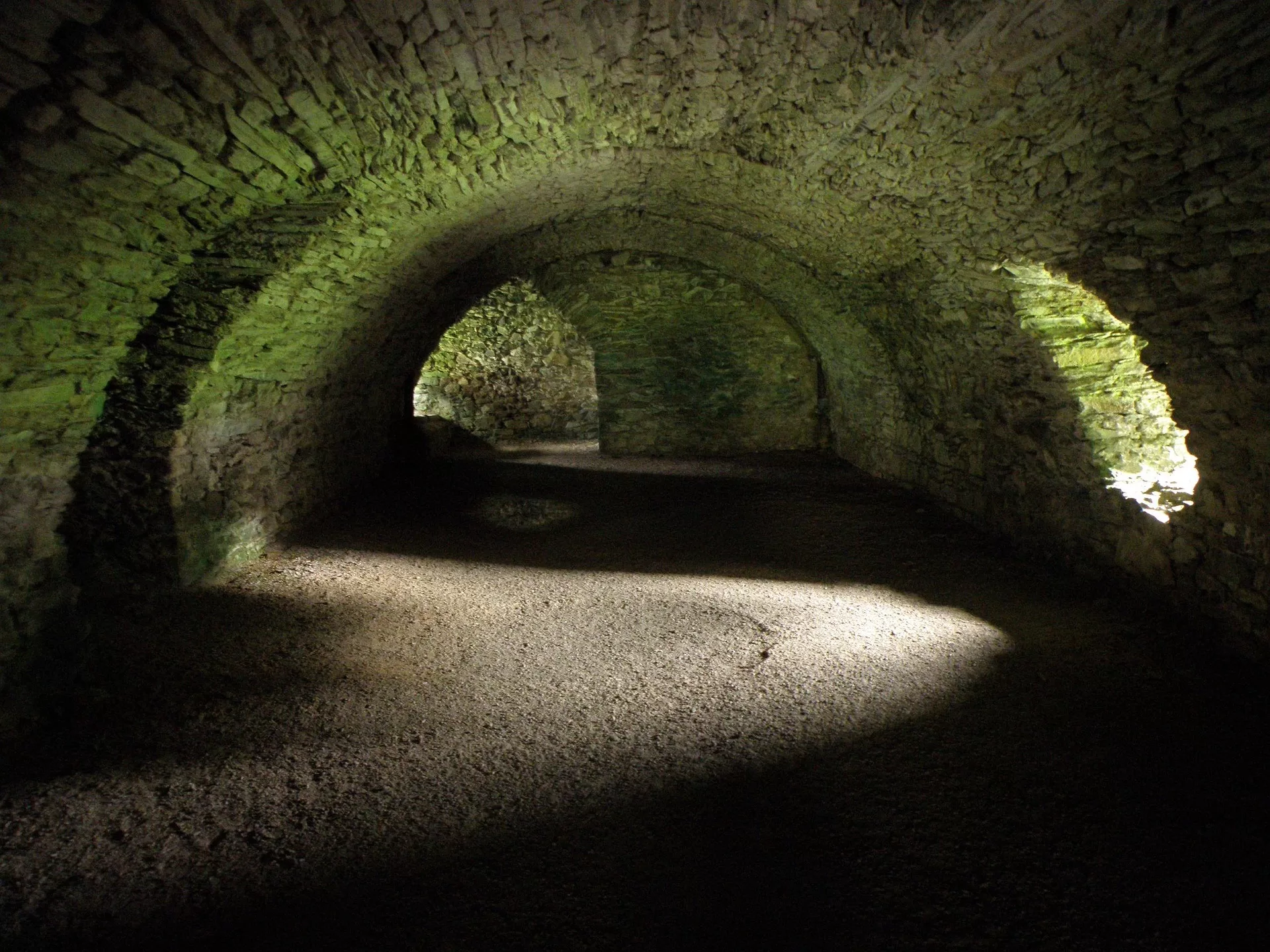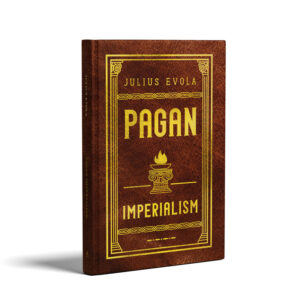We presently exist in a society that harshly and irrationally holds the past to the standards of the present, to the detriment of both. Much of modern society demands what is, in essence, a Maoist “Year Zero” mindset – that is, a perpetual present, or as Sōseki Natsume so eloquently put it, “an era of enlightenment with no past.” This seems nothing if not disastrous. Much of society is determined to commit what is tantamount to cultural suicide.
History is essential to all cultures. Nearly all of the world’s nations, as their cultures progressed to a certain degree and writing came into use, created some form of what is now commonly referred to as historical records. These were of course passed on to future generations. The origin of such records, especially their pre-historic transmission, the particularities of the various cultures, or the extent to which they convey facts, is another matter, but now it is clear that they are mainly a record of what these societies did and, usually, why such things were done. Their descriptions are almost always recorded in the form of a temporal progression, or, in other words, they are something of a chronicle. When they describe the vicissitudes of the natural world, this is because it has some effect on their behavior, and when they describe a general social condition rather than the behavior of individuals, this is of course because people created such states and acted under them. The fact that the historical records of the older periods are what they are shows what people valued in their lives as well as what they wanted to pass on to future generations. That is the essence of history. Of course, for today’s historiography, such things are merely historical documents in a certain sense – and many modern “scholars” masochistically look to find offense in them – but the essence of historiography is the same. This is because all historical phenomena, no matter what they are, are ultimately the actions of human beings.
“Without man there is no history. This is surely an incontestable truth. And yet, for some odd reason, we must remind ourselves each and every day to open our eyes to this truth and rescue it. Not only the materialist view of history, but all of modernity’s rationalist theories of history happen to have a tendency to forget this simple truth,” Hideo Kobayashi wrote in his essay “History and Literature.”
History is, of course, shaped by the actions of people. The actions that appear externally go without saying, but the movements of the human mind, of the psyche, can be included in the broad sense of the word “action.” However, a person is an individual in concrete terms. Even if we speak of the movements of a people or a society, what actually thinks and acts in reality is the individual, for all intents and purposes. There are many things that are common to all people in a certain ethnic group, such as lifestyle, manners, customs, morals, religious beliefs, or general disposition, but what ultimately causes joy, anger, sorrow, and pleasure varies from individual to individual. This is something that the modern Marxists and collectivists so vehemently deny. There are social organizations, political systems, and economic institutions that have various relationships with the individual, but what acts in reality is none other than the individual. Although there are all sorts of collective activities, and even though there are social movements and changes in public sentiment that take place at any given point in time, in reality there is only the action of the individual.
A group, then, is not merely a collection of individuals, but works in a specific way as a group, and social movements are not merely a collection of individual actions, but work in a different way, that is, as a society. This is manifested in, or through, the intermingling of action and reaction in the form of various things that take place unceasingly in the complex relationships among many individuals, which are interconnected in many ways and in many layers. In short, it arises from the movements of the minds and actions of many individuals. The same applies to the formation of customs and habits. Institutions and organizations are very much constrained by the individual, but it is the above-mentioned actions of individuals that shape them and make them possible. It is clear from this that all historical phenomena are the actions of people, which in reality are the actions of individuals. When I say “in reality,” I mean “in concrete terms.” The workings of a society as a group, the general climate of a people, their customs and habits, etc. are abstract concepts as far as human behavior is concerned.
However, action is a necessary function of human life. People live their lives by acting. “In order to manipulate that vague entity which is the mind or the heart, if one wants to know what has nurtured it and changed it, one has no choice but to speculate on the basis of external evidence, from a person’s words and actions,” Yukio Mishima wrote in The Way of the Samurai. Therefore, we must consider what human life is. The first thing to be known about it is that life is a temporal process. Everything a person does, no matter how small, has a process. No single word or line, however brief, is without a process of temporal progression. Or, rather, it can be said that people perceive time by what they say and do in their lives. And so, when one does something, it is to change the present state of affairs. Even a single word or a single line, after it is said, not only causes a change in those who hear it or are affected by it, but it also causes a change in the speaker. Even if it is only the movement of his own mind, and not his words or deeds that appear externally, his life changes once the words are spoken. What he does, when he does it, what he thinks, etc. – all of these things impose restrictions on him and bind him. This is to say that he changes himself. Today’s self is not yesterday’s self, but it is yesterday’s self within it.
Life is in constant motion. The way he moves is varied, sometimes large and strong, sometimes small and weak, sometimes suddenly and violently, sometimes gradually and with little motion. And that gradual, small movement can become a large movement due to an impetus from another source. In this way, any form of action is a form of movement. Whatever the form of movement, it is a continuous progression of life, because it is a series of successive movements. Therefore, there can be no break between them. In this sense, the self of today is not only the self of yesterday, but also the self from far before and the self from far after. Every single word and every single line, whether through the changes in life as described above or through other paths, will have an effect on later life. Sometimes it appears after a long interval of time; sometimes it takes place without being clearly known, but it is never absent. The work may be small or large, strong or weak, but it does not cease to exist at any time.
Life, which is in constant motion, has its own particular form and works in its own particular way from moment to moment, so that it is never the same again. The mood of the moment, i.e., physiological and psychological state, what comes to mind, the person and attitude at hand, the direction of the conversation, the surrounding circumstances and various other conditions work together to determine what is said and how it is said. These conditions can also vary from one to another. Since these conditions are made to work together, it is impossible for so many conditions to work in the same way twice, and therefore the same thing can never be said twice.
It goes without saying that what drives life are the workings of the mind. This is not really the right way to put it; the workings of the mind are the workings of life, but let us say so. The workings of the mind do not only refer to reason and wisdom, but also to motivation, emotions, and the moods of life. In fact, it is mainly the latter that directly affect people’s lives. More properly, there is no such thing as reason and wisdom or motivation and feeling, which work separately, but they are all aspects of the workings of the mind, and they permeate and change each other, so that within one work there are other workings, which not only move one’s life, but also make it possible for one’s life to be moved by it. Not only do they permeate and change each other, but also the workings of the body participate in them, for the sake of convenience. However, these various functions of the mind are not always in harmony, but there are sometimes discrepancies between them, and sometimes there are conflicts. The thought that is formed by reason and wisdom may be composed of many different and mutually incompatible ideas. Therefore, the way in which the workings of the mind move through life is not simple. This is the reason why I have separated life from the workings of the mind.
Of course, people do not live in isolation, so every word and every action is a negotiation with others and with society as a group, and life in general is social. Human life is historical, and people live within a long history as a people or nation. The fact that man’s thought contains many different things and that many aspects of his life are not in harmony with each other is due, not a few times, to the coexistence of things that have arisen in various stages of national and ethnic history.
An individual’s life is his own. But it is lived in an environment where material, spiritual, social, natural, and other forces and other things work together. Man reacts to the workings of this environment and tries to adapt them to his own life. In this sense, people create their environment without ceasing. This is where the power of man as the subject of his life lies, and where the meaning of life itself lies. Man is not only in a passive position vis-à-vis his environment, but also works actively. Yet the power of the environment is strong. We create our own environment and receive strong action from that environment. It was said above that one’s words, deeds, and thoughts constrain him, which means that his words and deeds form the environment as they are. Not only that, but this environment is often not in harmony with the things that shape it, and it is also constantly changing. Therefore, there tends to be confusion in the way people are affected by the environment in which they live. People are often overwhelmed by their environment, or their lives are otherwise disturbed by it. However, those who have a firm spirit and a solid philosophy of life often work actively against the environment, unceasingly changing it to suit their lives, thereby demonstrating their power as the subjects of their lives. In such a person, it is best known that life is the life of the individual and the life of the self.
The above is a discussion of individual life, but if group life, such as national life or cultural life, can be understood in a kind of metaphorical sense, then the same can be said of such life. As mentioned above, all human action is individual action, but if the actions of many individuals work together to create a collective action, then this can be called the life of the group itself. In this way, the life of the group can be considered in comparison to that of the individual. The mental workings of group life are far more complex than those of individuals, and the workings of life itself are far more multifaceted, especially as life itself is shaped by many individuals. In this sense, group life is also concrete.
Having said this, let us return to the question of history. History is a picture of life, but usually it does not refer to individual life, but to collective life, especially national or ethnic life. Life progresses over time, constantly changing the self in which it lives, and the process of progress is history in its entirety. However, it is only when one stands at a certain point in the process and looks back at the process that has passed up to that point that it enters one’s knowledge as history. Since life is a continuous process, when we set this point at a certain present moment in the process, the process of life from the past appears as history. This is history in its ordinary sense, but if history is the process of life, then the process proceeds from the present moment further into the future. That is, future life also forms history. It can be said that if we stand at the present point in the progression of future life and look back at the process up to that point, we can see life in the future from now on as life in the past, and history in its ordinary significance can be seen there. “The past is always a mysterious spring from which the future is born. It is the light that illuminates the path of the lost present,” Kafū Nagai wrote. Since this point is moving forward moment by moment, the process of history is gradually extending forward. However, we cannot know from the present what kind of history will be made in the future.
If history is the process of human life, it must be concrete in its nature. To know history is to reproduce the process of concrete life on the consciousness as it is concrete. However, history known in this way has no use as history unless it is written down. Therefore, it is necessary to record it, to describe the known history as it is, that is, to describe the process of concrete life as it is in concrete terms. Writing history is to see the history that is being made moment by moment as it has been made, and to reproduce and describe the process of making that history as it was made. Of course, it is necessary to grasp the cultural conditions of a certain period, the organizational structure of a certain society, or the general customs and habits of a certain people, as concepts, as a way of organizing knowledge in order to understand and write about specific life processes, but this is not the essence of history itself. This is also the reason why the historical records made by many peoples in the past are of the essence of history, as they describe the actions of people and have a chronicle-like character. This is partly because they are in harmony with the mission of history, which is to know and describe the processes of life as they are. Knowing and describing such history is an inner demand of life of all peoples, ancient and modern.
But is it possible to know and write history in this way? The process of past life is a history that is known, but “known” refers to the nature of history, not to the fact that it is known or knowable in its entirety. To know such history is to rely on historical sources in various forms and of various significance, but these sources are very few in relation to the totality of history, and even these few are prone to errors, bias, and other various shortcomings – especially in this modern era in which “progressives” actively seek to rewrite history to suit their purposes. The past is being rewritten to suit the present, as it were.
Therefore, special preparations must be made when dealing with historical sources. This is where a methodology for the study of history arises, and it is this methodology that makes the study of history possible, but whatever method is used, what is not known simply cannot be known. This is the limit of the study of history, and this is where modern historians often fall into error. Not only that, but although historical sources have been around for a long time, historians are modern people, and so when interpreting and handling them, the knowledge and thinking of modern people is likely to come into play, and the truth of the sources may be lost in the process. However, I will not go into this now. I believe that, since historical phenomena are the lives and actions of people, in order to know history, one must know “people” above all else, and that, in order to know “humanity,” it is necessary for those who seek to know them to also be “human” enough to know them. Knowing means to know their lives and their processes, that is, their living essence, to know them as they are.
I would like to mention two things: the significance of seeing the concrete image of a person’s living life and its process, the process of making history unceasingly towards the future. This is what I mean when I say that the process of life in the past is recreated in our consciousness. In this way, history can also be narrated. This can only be done by those who have a keen insight and deep sympathy for “humanity” and a rich imagination to create concrete images, in other words, those who have the qualities of a poet. The study of history is an academic discipline and may be called a science, but it is the poet who must know and write history. Because history is unknowable, the poet cannot transcend its limits, but even within those limits, the special meaning of knowing history lies in the fact that it is not a work of study alone in the usual sense of the word.
“The poet is always proud to be a forerunner against the will of history and the determination of his people. Already aware of his shameful deeds, the poet does not speak of humility,” Yojūrō Yasuda wrote in the introduction to his complete works.
However, it must be mentioned that there are still important things to be done in order to study history as an academic discipline. The process of life is a complex one, full of vicissitudes and ups and downs, in which many things are intertwined in intricate relationships, or rub against each other, or collide with each other, so that one or another of them becomes stronger or weaker, sometimes appearing, sometimes hidden, or new things arise when the previous one disappears. It is actually very difficult to reproduce them in our consciousness as a process of life, because not only do they become stronger or weaker, sometimes they appear, sometimes they are hidden, sometimes they disappear and new ones emerge. In order to do so, it is necessary to unravel the intertwined things in detail, to reveal how they are intertwined, and to understand how they move together to form the whole of life.
We must consider how life has progressed because of these events. It is said that many things intertwine with each other, but more properly they should permeate each other and change each other, and one thing will always change itself under the action of another. Many things are just a concept that cannot be decomposed in reality, but which is analyzed by thought, because it is necessary to make such an analysis as an academic guide to conceive a concrete image of life as a life. It is necessary in order to understand history to reveal the paths by which life has changed in this way. This corresponds to what is commonly referred to as considering the relationship between cause and effect, but, as I will explain, I do not think this way of thinking is appropriate. It is only after we have done this that we can conceive of the correct image of the process of life in a concrete form. Not only that, but it may also allow us to infer things that are not known due to the lack of historical sources, which may not necessarily extend the limits of history to a certain extent. However, this cannot be done merely by applying vague analysis, but only by coming into contact with concrete real life, which requires meticulous and accurate observation and thought – a spirit that unites all things in all things, rather than a spirit that is a single life working in all its various functions. The philosopher’s quality is required to find the fundamental spirit that moves the life, rather than the spirit that unifies it in the various things, which is a life that works in various ways. But it is not a matter of constructing abstract ideas or theories, because the task is to reveal the truth of concrete life. As mentioned above, it is necessary to grasp something as a concept for the sake of thought. To know the course of the process of life is to understand a specific, concrete historical phenomenon of life, of reality.
However, despite this, knowing and writing history is actually extremely difficult. No historian, no matter how poetically or philosophically gifted, can perfectly reproduce the processes of concrete life as they are in the concrete consciousness. “… the intention of literature has always been to interpret and perceive the world through words, and to make sense of the world in each and every age,” Yukio Mishima wrote in his 1962 essay “Eschatology and Literature.”
Not only are human beings, no matter how good their qualities, necessarily biased, but there are limits to what a historian can know, as I have said above. More fundamentally, to know something, no matter how small or simple, is to change it to some extent, depending on the knowledge and mood of the one who is trying to know it. In practice, therefore, many different historians have created different images of life and its processes, and different histories have been written. However, the historian should try as much as possible to avoid prejudice, to avoid fixed ideas, to avoid personal feelings, to avoid special intentions and arguments, and ultimately, to try to recall the historical process as objectively as possible.








